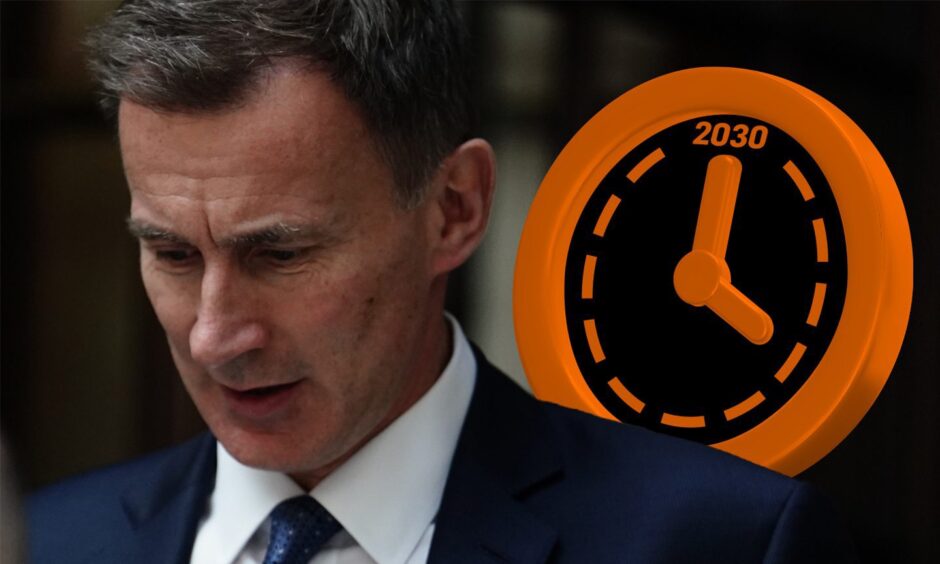
Ahead of the impending spring budget Jeremy Hunt has been told ‘time is running out’ to to deliver on the UK’s CCS goals.
As 2030 gets closer and closer there is a lot of work and funding needed to deliver on the UK’s various carbon-cutting targets.
One area still waiting for crucial government cash is carbon capture storage (CCS), the Carbon Capture and Storage Association (CCSA) explained.
With the UK aiming to capture and store 20 to 30 million tonnes of CO2 per year by 2030 and over 50 million tonnes per year by 2035, Final Investment Decisions (FIDs) are in a state of limbo.
The CCSA explains in its demands to the chancellor Hunt ahead of the UK’s upcoming budget: “These pending decisions on eight projects represent around one-third of the UK’s 2030 target for CO2 storage.”
The organisation says that “time is running out” as lead-in times for CO2 storage sites stand at around 6-7 years and 3-4 years for capture projects.
The CCSA adds: “It is important that the chancellor takes this opportunity to provide confidence to project developers to continue with their UK projects in a rapidly accelerating global market competing for private capital.”
Calls to ‘swiftly’ deliver £1 billion CCS pledge
The group urges Mr Hunt to “swiftly” dish out the £1 billion a year commitment set aside for the government’s CCUS programme.
With these funds announced almost a year ago, the industry is still waiting for the cash to materialise.
Ruth Herbert, chief executive of CCSA said: “The proposals and recommendations set out in the CCSA’s Spring Budget Submission reflect a significant opportunity for the UK, not only to meet decarbonisation targets but to retain our supply chain industries and attract new businesses to the UK to take advantage of this infrastructure.
“As deployment begins to ramp up around the world, UK can play a leading role in the rapidly growing global CCUS market.
“Significant progress has been made by the government in 2023, however, increased pace and forward visibility are paramount for investor and supply chain confidence.”
The CCSA’s notes for the chancellor call for annual revenue support matched to government targets to be established. This is estimated at £2 to 3 billion annually from 2028 onwards, including the £1bn per annum already committed.
These funds are needed to underwrite deployment levels until CCUS becomes self-sufficient in the 2030s the organisation argues.
Slow movement is ‘hindering industry growth’
The group writes: “Failure to act swiftly risks hindering industry growth and additional costs for achieving the UK’s targets.”
Projections indicated that the UK’s CCS industry has the capacity to attract up to £30 billion of investment by 2030 the CCSA’s Spring Budget Submission says.
This level of investment is set to create 70,000 new skilled jobs while protecting 77,000 existing jobs in sectors such as cement and chemicals where carbon dioxide is released during production processes.
Ms Herber concluded: “We look forward to continued collaboration as we stand on the cusp of developing a thriving and resilient CCUS sector here in the UK.”
Recommended for you


 © Supplied by CCSA
© Supplied by CCSA